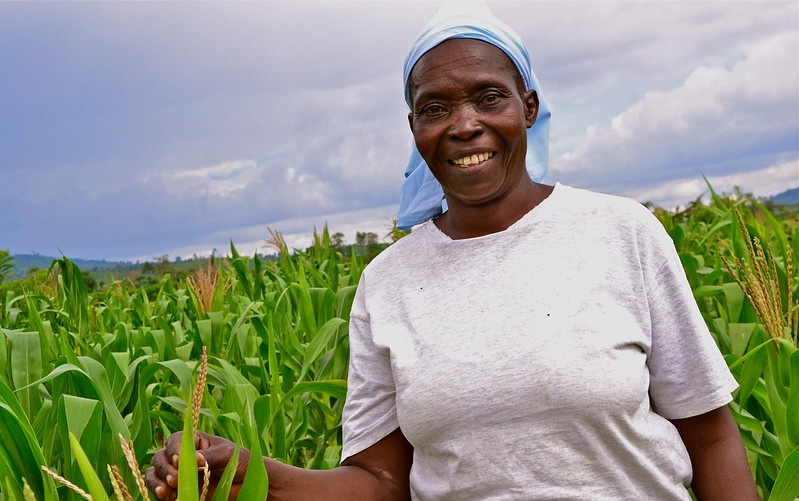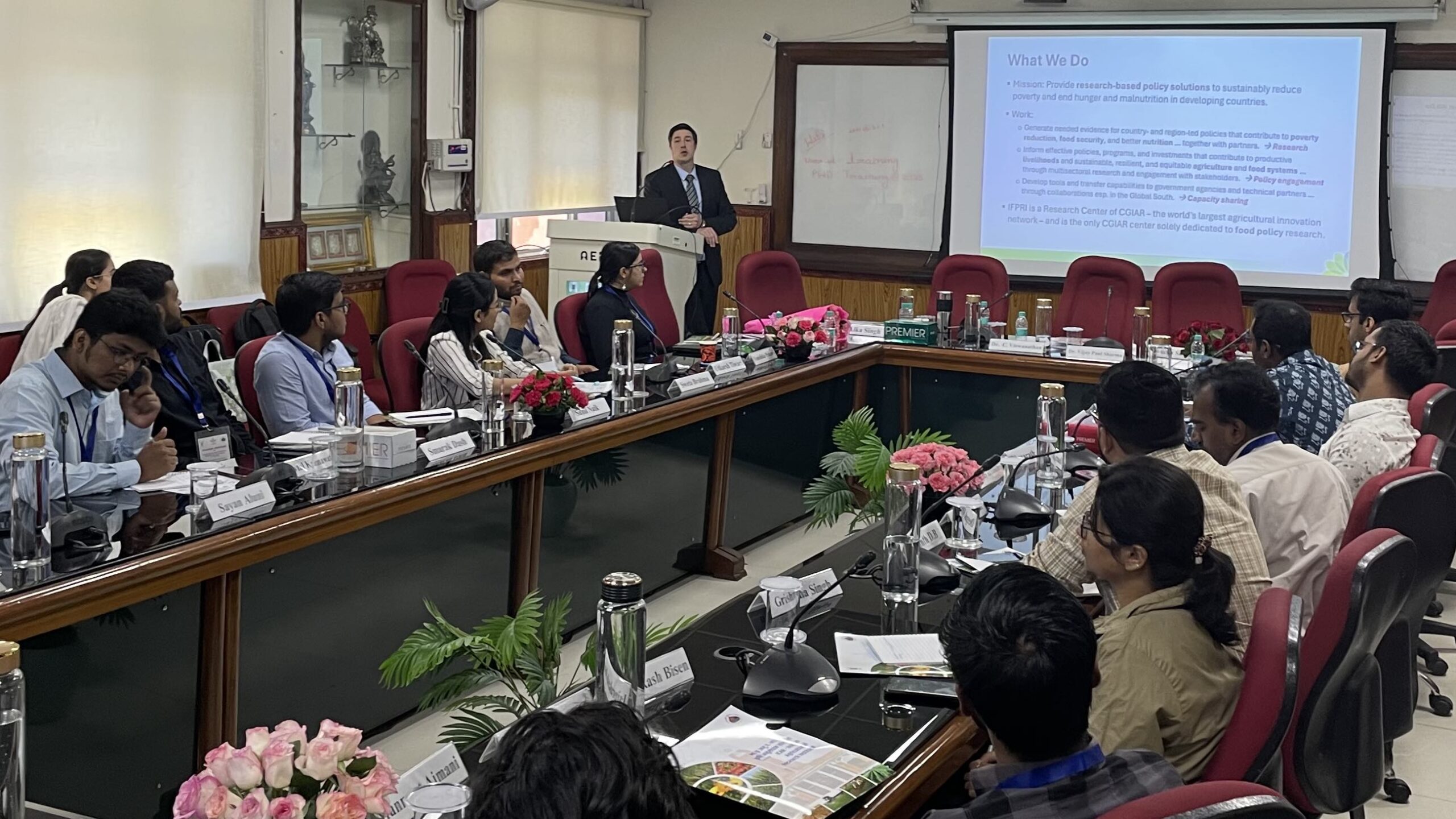Women farmers around the world are a key constituency in agriculture and in efforts to build sustainable, climate-resilient food systems, yet they are often marginalized by or left out of agricultural extension services that tend to target men. Is this because it simply does not pay to target women farmers with advice on climate resilience strategies? Or is it just too difficult to reach women with the information channels that are currently in use?
An Aug. 29 virtual event, part of the 31st Triennial International Conference of Agricultural Economists, addressed these questions by presenting research results from IFPRI’s Reaching Smallholder Women with Information Services and Resilience Strategies to Respond to Climate Change project and hearing from practitioners in the field.
IFPRI Senior Research Fellow Carlo Azzarri presented data from four countries in Africa south of the Sahara to assess if gender-specific targeting and provision of agricultural extension services paid off, both in terms of increased agricultural productivity and in mitigating adverse climate shocks such as floods.
If women and men both receive extension advice, agricultural performance is increased in Malawi, Nigeria, Tanzania and Uganda, the findings indicate. Productivity is higher when extension advice is received by the spouse who also manages the plot. Beneficial effects are largest when women and men farmers are targeted jointly and jointly manage the plot. Moreover, joint receipt of information and management of plots can lower the negative impacts of floods on agricultural incomes by 19%.
A second presentation by Muzna Alvi, a Research Fellow in IFPRI’s New Delhi office, focused on the impacts of COVID-19 on extension services in Nepal’s Dang province and India’s Gujarat state. She reported that 27% of survey respondents in Gujarat and 29% in Dang lost access to agricultural information during the pandemic, while other farmers noted a decline in quality and frequency of the advice. Her study, published in Agricultural Systems, also finds that farm productivity suffered due to the decline in agricultural extension. To strengthen women’s access to agricultural information, particularly on climate resilience strategies during and following pandemics, she proposed to employ community frontline workers, who have successfully extended public health to poor people as well as provided extension on livestock.
The third presentation by Rashid Khan, a PhD student at the University of Hohenheim, Germany, focused on data collected just before the start of the pandemic in Uganda. Results show that farmers use both public and private extension sources, but women use fewer information channels for advice on agriculture, even traditional “no-contact” sources such as radio and television. Moreover, the study found that modern information and communication technologies (ICTs) are not yet benefiting women farmers in the study sites, despite the rapidly increasing mobile phone ownership in Africa south of the Sahara.
Discussing the results, Patience Rwamigisa, the Assistant Commissioner for Agricultural Extension Coordination at the Uganda Ministry of Agriculture, Animal Industry and Fisheries, noted, “Given COVID-19, we have to double down on digital information services.” He said he was surprised by women farmers’ relative lack of use of TV, radio, and newspapers as sources of agricultural information, and asked the researchers to find other effective means of providing contactless information as the pandemic continues to rage in the region.
“For us as advocates research messages are critical. They also help us to determine where climate investment should go,“ said Fridah Githuku, Executive Director of GROOTS Kenya (Grassroots Organizations Operating Together in Sisterhood). “The results of the presentations have shown that women at the very grassroots level offer a great institutional framework to channel funds for an effective climate response.”
Mansi Shah, a Senior Agriculture Officer with Self Employed Women’s Association, a trade union with about 1.5 million members in India, called for more bottom-up participatory research that provides women farmers with data to make their case with government extension services and other officials.
One such activity was undertaken in Uganda as part of qualitative data collection in the project. Researchers from collaborating partner University of Hohenheim handed out smartphones to women and men farmers to self-record the climate resilience strategies they were using. An example, from farmer Nabbona Cissy Mulumba, can be seen here. The researchers report that the practices filmed by women farmers sometimes differed from those suggested in focus group discussions. Women generally mentioned fewer strategies compared to men and youth. Moreover, women farmers took an approximately equal number of photos and videos. The recordings thus elicited more information, especially from women.
Wrapping up the discussion, Shah challenged the researchers to further strengthen women’s involvement in the design and delivery of extension services and to ensure that such practices are scaled up. Githuku noted the need to double down on research that reduces adverse impacts from climate change for rural smallholders. Finally, Rwamigisa noted that more research is needed on how to reach farmers without face-to-face contact. All panelists agreed that paying attention to women farmers pays off, but questions remain regarding the most effective means of communication.
Claudia Ringler is Deputy Director of IFPRI’s Environment and Production Technology Division, and Deputy Director of the CGIAR Research Program on Water, Land, and Ecosystems (WLE).







